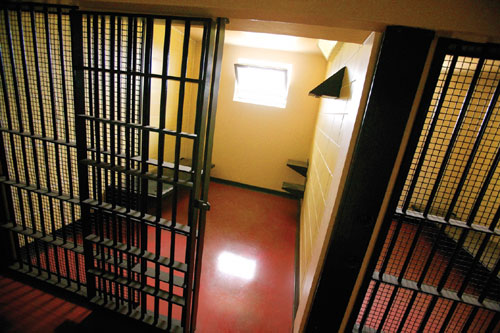 |
 |
| current issue |  | past issues |  | send a letter/news |  | address update |  | advertise |  | about us |  | alumni home |
Features
|
An Uncharted Path
Pleading guilty to negligent homicide usually leads to prison. But Jacalyn Colburn '82, '96JD knows that on occasion, true justice calls for something else. By Sandra Hume '92 |
Easy to print version Make a comment |
 |
The first thing Jim Dozois remembered after the accident was waking up and finding himself on top of his car. It was dark and snowy; broken glass was strewn everywhere. It took him some time to realize he had been in an accident. When he looked around for Joshua Hall, who had been in the car with him, he couldn't find him. Dozois finally located Hall draped through the car's rear window. As soon as he touched him, he knew he was dead. "Oh, my God," he said over and over. "I killed my best friend."
Two days later, on Monday morning, March 26, 2001, Jacalyn Gallup Colburn '82, '96JD headed to the Merrimack County jail to meet Dozois. Normally, as the managing attorney for the public defender's office, she assigned lawyers to cases. But vacations and sick days and court schedules had conspired, and there was no staff attorney available. So she went herself.
From the perspective of the defense, the details of the case weren't promising. Police estimated the car had been traveling at 95 mph when it went out of control on Rt. 114 in Weare, N.H. The black 1997 Volkswagen GTI had flipped three times, hit a snowbank, flown 15 feet in the air and smashed into a telephone pole, landing upside down. Police reported they had smelled alcohol on the breath of the 23-year-old driver. He had been read his rights in the X-ray room at Concord Hospital and charged with a Class A felony, negligent vehicular homicide.
In her years as a public defender, Colburn had become used to visiting defendants in jail who were defiant, or mentally unstable, or under the influence. When she was shown into a holding room, Dozois was sitting on the floor, sobbing. He hadn't used his one phone call: he was too ashamed, and he didn't know what to say. Colburn had never seen anyone look so utterly alone.
Colburn first joined the public defender's office in 1996, when she was fresh out of Franklin Pierce Law Center (now UNH School of Law). This career change came on the heels of a decade spent working in real estate development. Her husband and fellow WSBE grad Michael Colburn '82 was going to stick with the business they'd built together. Her faculty adviser, Jim Duggan (who today sits on the New Hampshire Supreme Court), was with the public defender's office at the time, and that seemed as good a place as any to start. "When you go to the defense side," she remembers Duggan telling her, "you'll find out very quickly whether you can do it, because not everyone can."
As a law student, she worked on whatever cases were available to her in the public defender's office. Taking advantage of two student programs, she was able to take on her first jury trial while still a student. Though she felt prepared—even over-prepared—she was pitted against a seasoned prosecuting attorney, and she was shocked when her client was acquitted. She decided that defense might be something she could do.
New Hampshire has 120 public defenders who handle the cases of defendants who can't afford to hire a private lawyer or choose not to. Twice a year Chris Keating, executive director of New Hampshire's public defender's office, guest-teaches a criminal justice class at Plymouth State and asks the students two questions: "If you needed a defense lawyer, would you want a public defender to represent you?" And then, when the answer is no, as it invariably is, "Why not?"
Easy to print version
blog comments powered by Disqus

